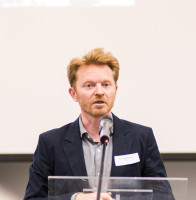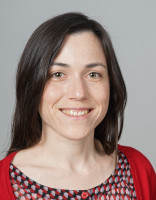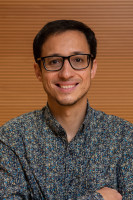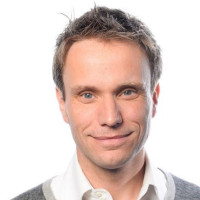Mental Health & Neurology
Longevity, Ageing and Long-term Care
Brain Mechanisms & Psychology
Neurodevelopmental Disorders
Alzheimer's Disease, Dementia & Neurodegenerative Diseases
Healthy Ageing & Longevity
AXA Chairs
Belgium
2012.01.31
AXA Chair in Neurosciences & Longevity
ULB uses a multidisciplinary and innovative approach to synergize the best ULB neuroscience teams within the Neuroscience Institute (UNI), comprising scientists from different backgrounds, from genetics to psychology, neurobiology to clinical disciplines and even artificial intelligence.
Such a broad approach is a first in Belgium. It is being carried out by Prof. Pierre Vanderhaeghen, the new Chair holder, specializing in the study of the cerebral cortex, a recently elected member of the European Molecular Biology Organization (EMBO), and notably awarded the Francqui Prize, the most prestigious award for Belgian scientists.
The first axis of his research will strive to uncover the mechanisms underlying the development of higher brain functions and how its alterations can lead to human diseases, while the second will try to use this knowledge to design innovative approaches towards brain repair.
An ambitious scientific program, a world renowned researcher and a brand new ULB Neuroscience Institute to host the Chair: this is an exciting combination with a great potential impact on healthy aging, prevention, understanding and treatment of brain diseases (including neurodevelopmental autistic syndromes and neurodegenerative disease such as Alzheimer’s and stroke)."
The cortical network
To understand how the brain works or dysfunctions, we must discover the mechanisms by which various levels of complexity of the nervous system are interconnected, and reveal the precise chain that links the microscopic level of molecules and cells to the higher levels of mind and consciousness.
ULB has chosen to develop an innovative approach in keeping with aforementioned principles of multidiciplinarity: to combine and synergize the best ULB neuroscience teams within a Neuroscience Institute (UNI), comprising scientists from very different backgrounds, from genetics to psychology, from neurobiology to clinical disciplines, and even to artificial intelligence. This variety of profiles, techniques and concepts will undoubtedly help tackle one problem from multiple perspectives, enabling new discoveries.
Such a broad approach is a first in Belgium, and an exciting setting for the two research axes carried out by Prof. Pierre Vanderhaeghen, the new Chair holder, specialized in the study of the cerebral cortex. The first axis will strive to uncover the mechanisms underlying the development of higher brain functions and how its alterations can lead to human diseases, while the second will try to use this knowledge to design innovative approaches towards brain repair.
The cerebral cortex is the most complex structure in the human brain and the major site of higher cognitive functions specific to our species. A variety of brain diseases result from altered development in the cortex, from mental retardation to autistic syndromes or epilepsy. And while several mechanisms underlying cortical development have been identified through the cellular modeling of animal brains, many remain to be uncovered, in particular given the considerable evolution undergone by the human cortex. For instance, some of the primary neuronal lesions present in the brain of human patients with Alzheimer's disease, cannot be modeled properly in mouse models. In this respect, the Chair’s first research axis will rely on new technologies of pluripotent stem cell technology combined with molecular neuroscience, to reconstruct cellular brain models, analyze their specific functions and identify candidate causal or predisposing genetic factors to cognitive impairment and neurogenetic disorders.
The second research axis on neural ageing and degeneration will make use of the generated results and new tools to improve early detection and prevention of diseases affecting the cerebral cortex and explore novel opportunities for the design of brain repair strategies.
This two-fold research programme will greatly benefit from the integration of Prof. Vanderhaeghen's team, given his groundbreaking work on the mechanisms of brain development and his influence and collaborations in the neuroscience and stem cell scientific community. Indeed, beyond the bridges he managed to build between these various disciplines, his discovery of innovative experimental models to study human brain development, function, and diseases has put him at the forefront in a highly competitive area of research. A recently elected member of the European Molecular Biology Organization (EMBO), he was notably awarded the Francqui Prize, which is the most prestigious prize for Belgian scientists.
A wonderful addition to a university with an outstanding record of four Nobel Prizes, four Wolf Prizes, two Marie Curie Prizes, and 31% of the annual Francqui Prizes as well as a Fields Medal and an Abel Prize! What is more, the Université Libre de Bruxelles’ network of University hospitals, among which the academic medical “Hôpital Erasme” will prove a considerable asset to Pierre Vanderhaeghen’s work.
An ambitious scientific programme, a world renowned researcher and a brand new ULB Neuroscience Institute to host the Chair: those constitute the three ingredients to an exciting combination with great potential impact on healthy ageing, prevention, understanding and treatment of brain diseases (including neurodevelopmental autistic syndromes and neurodegenerative disease such as Alzheimer's and stroke).
To add or modify information on this page, please contact us at the following address: community.research@axa.com

Pierre
VANDERHAEGHEN
Institution
Université libre de Bruxelles
Country
Belgium
Nationality
Belgian
Related articles
Mental Health & Neurology
Pandemics & Infectious Diseases
Women's Health
Covid-19
Mental Disorders, Anxiety & Depression
Pregnancy & Maternal Health
Neurodevelopmental Disorders
AXA Award
Spain
2020.08.31
The Effects of the COVID-19 Pandemic on the Mental Health of Mothers and Newborns
Early results are expected in less than 12 months and will help bridge a critical gap in research. Indeed, “in... Read more

Maria
FORASTER
ISGlobal Barcelona Institute for Global Health
Mental Health & Neurology
Pandemics & Infectious Diseases
Mental Disorders, Anxiety & Depression
Covid-19
AXA Award
Spain
2020.08.31
Coping With the Pandemics: What Works Best to Reduce Anxiety & Depression
The results of this longitudinal study will allow Dr. Radua to produce evidence-based, clear, and specific recommendations on effective coping... Read more

Joaquim
RADUA
